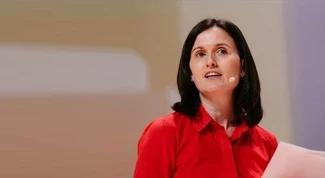We had the privilege of interviewing Olympic legend and public speaker, Alex Gregory, to learn his thoughts on teamwork and leadership. He reflected on how the postponed Olympic Games may affect athletes and the importance of consistency in our quest for success.
Alex is an empowering motivational speaker. With his results-driven guidance on personal development, Alex leaves audiences with a newfound perspective of their true potential. An event featuring this nationally celebrated athlete is guaranteed to leave a resounding impact.
Q: What are your thoughts on the postponement of the Olympics and how has it impacted athletes?
“For the athletes who perhaps didn't get selected the first time around, they will now have an extra year to prepare. I've spoken to some of my rowing ex-rowing colleagues and people still in the rowing system and said, ‘look, you've got a second chance now, you've got a chance to really think about what you need to change’.
“On the other hand, those athletes who were perhaps, as I was in 2016, looking at Tokyo 2020 as their last Olympics, they could see the end of their athletic careers on the horizon. For some people, it's something they look forward to, and other people perhaps not.
“Facing another 12 months of training and preparing is a really difficult thing to do. But we all have to accept what's happening and adapt. We all have to get our heads down and get through this period - it's the same for those athletes.
“During lockdown, athletes have had to train in their gardens, train in isolation, they have had to train on their own. One of the things that really kept me going and really motivated me when I was preparing for the Olympics was the community around me. I was pushed on by my colleagues, pushed on by the people around me.
“And they haven't had that which is really difficult.
“But yet again, they have to find ways to do it. And it's a good opportunity to grow in mental strength, but also find other ways to communicate with their teammates.
“For example, there's nothing stopping athletes training together. It sounds silly, but looking across at someone in pain, they’re feeling the same as you're feeling, and it will push you to continue.
“There are different ways to self-motivate and athletes have to adapt, as we all do.”
Q: What qualities do you possess that you believe led to your Olympic success?
“If there is one thing I have learned, it is consistency. My coach valued consistency.
“Anyone could turn up tomorrow at the British Olympic rowing training venue, sit on the rowing machine and get a World Record. Everyone would be blown away: ‘you've just got a world record; you've just turned up and got a world record’.
“But that world record absolutely killed you. It took everything out of you emotionally, physically, in terms of preparation, in terms of recovery. You can't recover from it. You perhaps injured yourself doing it.
“You went above and beyond, which is fantastic, but you can't turn up tomorrow. And suddenly that world record means nothing. You might not be there come the start line of the Olympic final.
“You might not be there when your team needs you.
“It took me a while to learn this, that what my coach needed was someone who didn’t get a World Record necessarily, but just got their score. And then the next day, they got a score which was marginally better, slightly better. The next day they were perhaps back at the score before, but the day after that, they were slightly better.
“Again, nothing ground-breaking, but they were always there, relentlessly there.
“What that created was a culture of trust between me and my coach, but also my teammates as well. They know what you're capable of. They know that they can rely on you. They know that come the Olympic Games, you will be there doing your thing. You may not be the best in the world, but you will be doing your thing.
“Taking that into my life now away from sport, and I've still got a hell of a lot to learn with this, but I try to be consistent with my communication. I try to be consistent with the way I am with my children, although that's the hardest job in the world to be consistent with them. But if I'm consistent, they know what they want from me and they know what they're getting from me.
“Consistency was such an important part of performance.
“And I think, if we can be more consistent in our lives then the people around us will be better off, and we'll be better off.”
Q: how do you motivate yourself to improve and grow?
“January 1st 2020, I knew I had to make a change. I knew I had to form a routine and create new habits. So I got up and thought ‘how do I do that?’.
“I'm going to get up and I'm going to go for a run. It's not my thing, but I'm going to get up and go for a run. So I got my kit, and I went out for a ten-minute run.
“Suddenly, I felt like a good person. I'm suddenly fit and healthy, and I'm going to eat healthily as well. So just those tiny little ten minutes in the morning gave me something to latch onto.
“The next day, my alarm went off at 6 am and I thought, ‘oh no, I don't want to do this, I don't want to, it's raining outside, I can't get out now. I'm tired from yesterday’.
“But actually, my clothes are already by the door. My shoes are actually outside. I have no excuses. If you make those habits easy for yourself, give yourself the absolute best chance to form those habits and take away any excuses, then all sorts of doors will open up.”
Q: Why is teamwork important and what constitutes a successful team?
“I was never the best at rowing. I was never the most naturally gifted, talented athlete. I was not stronger, fitter than anyone else out there.
“And yet, I won many races in my career, more than most rowers.
“I raced in the Olympic Games with four people, the four of us in the boat, and [Mohamed Sbihi] was always going to be stronger than me. He's a massive guy. His physical strength is his strength. I could train for the rest of my life and never be as strong as him.
“I knew I needed his strength in the boat, so how do I make it easy for him to get the best out of himself?
“He got nervous before races, so I spoke to him in a certain way to help him be comfortable, and be the powerful guy he is in the boat.
“I was taking the pressure off me because I was focusing on my teammates. I was making it easy for them.
“So I think teamwork comes down to accepting that you need other people, you need the skills of other people. You're not better than anyone else in your team. Everyone has a skill that you need, so make it easy for them to perform.
“I was the person who stuck it out through thick and thin. I was gradually getting better, helping people along the way, getting help from people along the way. And I ended up with the results I needed, and the results that I wanted.”
Book Alex Gregory With Champions Speakers
Contact the Champions Speakers agency to provisionally enquire about Alex Gregory for your event today. Simply call a booking agent on 0207 1010 553 or email us at [email protected] for more information.









